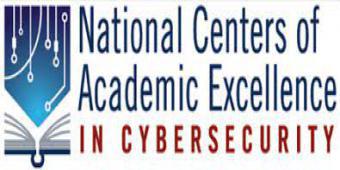The Laboratory for Education and Research on Security Assured Information Systems (LERSAIS) is home to a premier research program that focuses on the diverse problems related to security and survivable information systems, networks, and infrastructures. LERSAIS has been designated as a National Center of Academic Excellence in Cybersecurity Education and Research since 2004 by the US National Security Agency (NSA) and the Department of Homeland Security (DHS). LERSAIS is a member of the CAE Community.

As part of the School of Computing and Information (SCI) at the University of Pittsburgh, LERSAIS offers academic and degree programs aimed at creating the next generation of Information and Network Security professionals. Our academic programs provide students (Bachelor's, Master's, and PhD) with the skills to analyze current systems for security issues, to design systems that are secure and sustainable, and to identify the security-related research challenges that will face businesses, governments, and people in the years to come.
Leadership
 Founding Director -- James B.D. Joshi, PhD
Founding Director -- James B.D. Joshi, PhD
Dr. Joshi joined the School of Information Sciences (predecessor to the School of Computing and Information) in 2003, after earning his PhD in Computer Engineering from Purdue University. He is a Professor in the Department of Informatics and Networked Systems. His research expertise lies in the areas of Systems/Applications Security, Role-Based Access Control, Secure Interoperability, Security and Privacy of Distributed Systems, Intrusion Detection Systems, and Security and Privacy in Social Networks and Cloud Computing. Since 2019, he has been serving as a Program Director of the Secure and Trustworthy Cyberspace (SaTC) program at the National Science Foundation.
 LERSAIS Associate Director for Education and Outreach -- Ahmed Ibrahim, PhD
LERSAIS Associate Director for Education and Outreach -- Ahmed Ibrahim, PhD
Dr. Ibrahim is an Assistant Professor in the Department of Informatics and Networked Systems. He received his PhD in Computer Science from the University of Kentucky in 2016. He also holds two M.Sc. degrees in Computer Science, one from the University of Kentucky in 2014 and one from Egypt in 2009. His teaching expertise lies in the areas of cybersecurity, security and privacy, network security, and security management and computer forensics,
Research at LERSAIS
Our research and academic programs address the spectrum of technology and humanistic aspects of securing systems and networks. Faculty researchers are exploring the boundaries of topics such as (but not limited to):
- Role-based Access Control
- Systems Survivablity
- Wireless Information Systems Security
- Cryptography and Network Security
- Distributed Systems and Privacy
- Network Design and Traffic Restoration
- Cyber-physical Systems Security
- Security and Internet of Things
Associated Academic Programs
Students can pursue professional and academic programs at the Bachelor's, Master's and PhD levels.
Our Master of Science in Information Science program (MSIS) features a specialization in Information Security, which prepares graduate students for cybersecurity careers in industry, government, healthcare, and higher education.
In addition, the School offers graduate certificates in:
- Cybersecurity, Policy, and Law
- Information and Network Security (formerly the Certificate of Advanced Study in Security Assured Information Systems).
We also offer a Bachelor of Science in Information Science degree program (BSIS) which has a pathway for students interested in Cybersecurity coursework and careers.

The School of Computing and Information is proud to have held the designation of National Center of Academic Excellence in Cybersecurity since 2004.
The National Centers of Academic Excellence in Cybersecurity (NCAE-C) program is managed by NSA's National Cryptologic School. Federal partners include the Cybersecurity and Infrastructure Security Agency (CISA), the Federal Bureau of Investigation (FBI), the National Institute of Standards and Technology (NIST)/National Initiative on Cybersecurity Education (NICE), the National Science Foundation (NSF), the Department of Defense Office of the Chief Information Officer (DoD-CIO), and U.S. Cyber Command (USCYBERCOM).
NCAE-C program aims to create and manage a collaborative cybersecurity educational program with community colleges, colleges, and universities that:
- Establishes standards for cybersecurity curriculum and academic excellence,
- Includes competency development among students and faculty,
- Values community outreach and leadership in professional development,
- Integrates cybersecurity practice within the institution across academic disciplines,
- Actively engages in solutions to challenges facing cybersecurity education.

